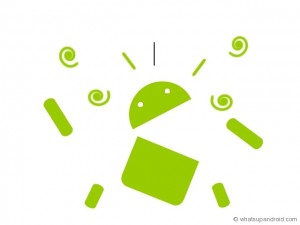I just read a great article from Jason Perlow, the senior technology editor at ZDNet. A former Android evangelist, Jason has decided to leave the Android platform and buy an iPhone. He claims he is switching to the iPhone because the promise of what Android is intended to deliver is perverted by the hardware manufacturers and wireless carriers. The Android that is being sold – as compared to the Android that is talked about by Google and Android supporters – are two very different things. To quote Jason:
What I’m trying to get at is there is a perfect image of what Android is supposed to be, what Google and Android’s staunchest adherents purport it to be, and then there is Android as it is practiced in reality.
Android as it is being sold to you by OEMs and wireless carriers is a lie. It is Android interpreted and regurgitated as perverted scripture from false prophets.
Specifically, Jason’s biggest beefs with Android phones are the fact that promised updates often come very late (if at all), the general unreliability of the devices as he has experienced, the complexity that hardware manufacturers and wireless carriers introduce into their particular Android-based phones, and the resulting inconsistent user experience. When compared to Apple’s iOS devices, which have uniform updates, unmatched ease-of-use and reliability, and a universal user experience, Android just isn’t in the same league.
I’ve written about Android’s problems before on this blog as well as my one of my other blogs, State of the Tech. Most of my writings echo exactly Jason’s dissatisfactions with the Android platform. So I won’t rehash them here. However I will discuss the many surprising comments people wrote about his article. A main theme among many of those comments were the idea that the problems with the Android platform aren’t Google’s fault. They are the fault of the hardware vendors and carriers. Which makes the author’s point exactly!
Who cares whose fault it is that Android phones have these problems? The problems EXIST. That is what matters. It really doesn’t matter one bit what Android is supposed to be. It doesn’t matter in the least what Google’s intentions are. The only thing that matters AT ALL is reality. The only thing consumers care about is the user experience. Whining that it’s the hardware vendors’ or carriers’ fault doesn’t change the fact that the Android user experience doesn’t hold a candle to Apple’s iOS devices.
What this whole experience shows is a fundamental flaw in Google’s approach to Android. For all the complaining that people do about Apple’s “closed ecosystem”, the very reason Apple controls everything it can is so that they can ensure the end user experience is as good as possible. Most other hardware manufacturers are motivated by differentiating their devices from all the others that run the same operating system. To think that the hardware vendors are going to conform to a unified Android experience is fanciful. If all Android phones had nearly the same user experience, hardware vendors would have an almost impossible time differentiating themselves. The problem is that they already have a very hard time with differentiation! The root problem is that Android encourages a commodity smartphone market, just like Windows encouraged a commodity PC market. A commodity market encourages competition almost completely on price. Profits suffer in a commodity market. PC makers had higher margins to start with but they all still eventually consolidated on the same low-margin business model – not coincidentally except for Apple. The problem with smartphone manufacturers (again, other than Apple) is that they were already in a low margin business to start with. If companies aren’t making any money, all the good intentions in the world doesn’t matter. Companies won’t stay in the Android business if they aren’t profiting.
Apple’s priority is user experience. Google’s priority for Android is “openness” or whatever other technical nonsense is du jour. Hardware manufacturers and wireless carriers priority is differentiation. Given how well Apple’s iPhone, iPad and iPod Touch continue to sell, I think the answer is pretty clear which priority users have in mind.
